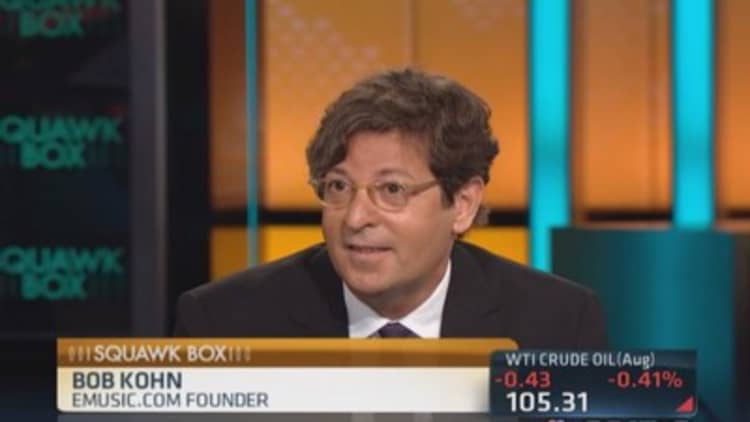Labor unions representing workers from across Europe met on Wednesday to discuss how best to take on Amazon, following what they describe as the "mistreatment" of its workforce.
It is the latest sign of a growing discontentment with the online retail giant in Europe, where it has also made headlines for low corporate tax payments and contractual battles with book publishers.
Representatives from unions in Germany, the U.K., Poland, the Czech Republic and U.S. met in Berlin for two-day talks to discuss how working conditions at Amazon plants can be improved with joint action.
"The issues with Amazon are global ones, so they need global solutions," said Paul Clarke, national organizer at GMB union, which is at the talks. He accused Amazon of paying low wages and putting employees under undue pressure to hit packing targets.
"Amazon needs to stop treating its workers like skivvies. They need to engage with the unions and become a reasonable employer," Clarke told CNBC.
Amazon has more than 20 "fulfilment centers" in Europe and typically pays its permanent employees above the minimum wage. In the U.K., for instance, where minimum wage is £6.31 ($10.83) an hour, the company said permanent employees – or "associates" - start on a minimum of £7.10 per hour.
On its website, the company said: "We care for our associates' wellbeing and maintain a culture of direct dialogue and innovation."

But Alke Boessiger, head of commerce at UNI Global Union, which has coordinated the talks along with the International Transport Workers' Federation, accused Amazon of treating workers "like robots".
The unions at the meeting are planning to develop a coordinated strategy to increase wages and improve working conditions. They also hope to increase worker representation across Europe – especially in Poland and the Czech Republic, where the company is planning to open more distribution centers.
Amazon, however, said it "firmly believed" the best way to understand and respond to its workforce was directly with its employees.
"We have multiple avenues to listen to and respond to our associates, including employee surveys, anonymous helplines, voice of associate boards, All Hands meetings, roundtables, and other mechanisms," the company said in a statement emailed to CNBC.
Amazon has already been hit with a number of strikes by workers across Europe. In Germany –where the retailer employs around 9,000 people – workers' efforts to negotiate new pay deals have resulted in multiple strikes. The company has also been hit by industrial action in France and protests in Britain.
It follows a public backlash against the U.S. company for channeling its European revenues to Luxemburg in an effort to minimize corporate tax payments. For example, Amazon reported sales of $7.3 billion in Britain in 2013, but only paid £10 million ($17.2 million) in tax, according to Reuters.
"This tax dodge is win-win for Amazon, but makes the rest of us – as taxpayers – losers," GMB's Clarke added. "And it's another reason so many of its competitors have gone out of business. Amazon has a distinct advantage: they don't pay tax."
The company has also made headlines in Europe recently as a result of its public battle over an e-book contract with U.S. book publisher Hachette, which is owned by France's Lagardere.
Amazon – which owns the Kindle series of e-readers - has been accused of using its influence in the e-book market to put pressure on publishers to agree to tougher contracts.
But Russ Grandinetti, Amazon's vice president of Kindle content, defended its stance against the publisher in an interview with The Wall Street Journal.
"This discussion is all about e-book pricing," Grandinetti is reported as saying on Tuesday. "The terms under which we trade will determine how good the prices are that we can offer consumers."
—By CNBC's Katrina Bishop


